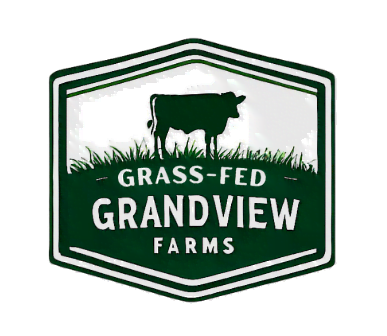In an era of growing environmental consciousness and concerns about animal welfare, the future of sustainable meat production is gaining increasing attention. Farm to table beef, a movement that emphasizes transparency, traceability, and ethical practices from farm to fork, has emerged as a promising approach to address these concerns. As consumers become more discerning about the sources of their food, initiatives like Grandview Farms play a crucial role in promoting a more sustainable and humane approach to meat production.
Embracing farm to table beef offers a multitude of benefits, including:
Environmental Sustainability: Farm-to-table beef often involves sustainable farming practices that minimize the environmental impact of cattle production. These practices include rotational grazing, which improves soil health and reduces erosion, and the use of natural feed sources, which reduces reliance on synthetic fertilizers and pesticides.
Animal Welfare: Farm to table beef producers typically prioritize animal welfare, ensuring that cattle are raised in humane conditions with access to pasture and natural behaviors. This approach promotes the well-being of animals and reduces the use of antibiotics and hormones.
Consumer Transparency: Farm to table beef provides consumers with greater transparency about the origins and production practices of the beef they consume. This transparency empowers consumers to make informed choices that align with their values and support sustainable practices.
Economic Viability: Farm to table beef can be a viable economic model for farmers, providing them with a premium for their sustainably raised beef and strengthening connections to local communities. Do check this link about the history of Farm Table Movement
Key Principles of Farm-to-Table Beef
The Farm to table beef movement is guided by several key principles:
Local Sourcing: Farm to table beef emphasizes sourcing beef from local farms, reducing transportation emissions and supporting local economies.
Sustainable Farming Practices: Farm to table beef producers prioritize sustainable farming practices that protect the environment and promote animal welfare.
Transparency and Traceability: Farm to table beef provides consumers with clear information about the origins and production practices of the beef, ensuring transparency and traceability.
Building Relationships: Farm to table beef fosters relationships between farmers, consumers, and chefs, creating a sense of community and shared responsibility.
Implementing Farm-to-Table Beef Practices
Adopting Farm to table beef practices involves a holistic approach that encompasses various aspects of the beef production chain:
Farm Management: Sustainable farming practices, such as rotational grazing, natural feed sources, and reduced reliance on antibiotics and hormones, form the foundation of farm-to-table beef. Also check out raising home grown animals for superior beef.
Processing and Handling: Proper handling and processing practices, including humane slaughter methods and minimal processing, maintain the quality and integrity of the beef.
Marketing and Distribution: Effective marketing and distribution strategies connect farm-to-table beef producers with consumers, emphasizing the sustainable and ethical aspects of the product.
Consumer Education: Educating consumers about the benefits of farm-to-table beef and providing transparent information about its origins and production practices are crucial for driving consumer demand.
Challenges and Opportunities
The transition to farm-to-table beef presents both challenges and opportunities:
Challenges:
Scale-up: Scaling farm-to-table beef practices to meet large-scale consumer demand while maintaining sustainable and ethical standards can be challenging.
Consumer Awareness: Raising consumer awareness about the benefits and availability of farm-to-table beef is essential to drive demand.
Infrastructure and Logistics: Establishing efficient infrastructure and logistics for sourcing, processing, and distributing farm-to-table beef requires collaboration and investment.
Opportunities:
Growing Consumer Demand: Increasing consumer interest in sustainable and ethical food practices presents a significant market opportunity for farm-to-table beef.
Technological Advancements: Technological advancements in traceability, data management, and supply chain optimization can support the growth of farm-to-table beef.
Community Engagement: Farm to table beef can foster stronger connections between farmers, communities, and consumers, promoting local economies and sustainable food systems.
The Future of Farm-to-Table Beef
The future of farm-to-table beef is promising, with the potential to revolutionize the beef industry and promote a more sustainable and ethical approach to meat production. As consumer demand for sustainable and ethically produced food continues to grow, farm-to-table beef is poised to play an increasingly significant role in the future of food systems.
By embracing farm-to-table beef practices, we can reduce the environmental impact of beef production, ensure the well-being of animals, empower consumers to make informed choices, and support sustainable and ethical food systems. The journey towards a more sustainable beef industry begins with a commitment to farm-to-table principles and a collective effort to transform our relationship with food.
Empowering Consumers with Farm-to-Table Beef
The farm-to-table beef movement empowers consumers to make informed choices about the beef they consume. By connecting consumers directly to farmers, farm-to-table beef fosters transparency and traceability, allowing consumers to understand the origins and production practices of the beef they purchase. This transparency enables consumers to support sustainable and ethical beef production while aligning their dietary choices with their values.
Supporting Sustainable Beef Farming
Farm-to-table beef promotes sustainable beef farming practices that protect the environment and enhance animal welfare. By prioritizing rotational grazing, natural feed sources, and reduced reliance on antibiotics and hormones, farm-to-table beef producers minimize their environmental footprint and ensure animal well-being. These practices contribute to a more sustainable and ethical beef industry.
Strengthening Local Economies
The farm-to-table beef movement supports local economies by sourcing beef from nearby farms. This approach reduces transportation emissions, minimizes reliance on large-scale industrial agriculture, and strengthens connections between farmers and consumers within the local community. By supporting local farmers, farm to table beef fosters a more resilient and sustainable food system.
Enhancing Consumer Experience
The farm-to-table beef movement elevates the culinary experience by providing consumers with access to higher-quality, more flavorful, and ethically raised beef. By sourcing from local farms and prioritizing sustainable practices, farm-to-table beef producers cultivate a deeper connection between consumers and the origins of their food, enhancing the overall dining experience.
Conclusion
Farm-to-table beef represents a transformative approach to beef production, offering a sustainable, ethical, and transparent path forward. By embracing farm-to-table principles, we can create a more sustainable food system, enhance animal welfare, and empower consumers with informed choices. As the demand for sustainable and ethically produced food continues to grow, farm-to-table beef is poised to play a pivotal role in shaping the future of the beef industry and the broader food landscape.




